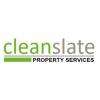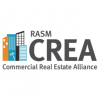1031 Exchange Qualified Properties By Jeff Riddell
1031 Exchange Qualified Properties
By Jeff Riddell
Over the last several articles, we have covered real estate investing for various age groups, from youngest to oldest. One thing is common to all of the age groups: There will come a time when every real estate investor decides to dispose of his investment. If you don’t like to pay capital gains tax (or recapture of depreciation, if applicable), we should touch on the subject of 1031 exchange. The sleeping giant has in fact started to awaken. After my company, U.S. 1031 Exchange Services, Inc., facilitated over 500 exchanges in 2005, business tanked but is slowly reviving. Believe it or not, there are people who are selling real estate at a profit. Next article, we’ll discuss the 1031 exchange process, but for this article let’s take a look at what kinds of real estate qualify for a 1031 exchange.
There are common misconceptions about properties that qualify for 1031 exchange. Hopefully this article will clear things up. Remember, 1031 exchanges are for both real estate and personal property, but the following discussion is about real estate since this magazine is about real estate.
IRS says that properties qualified for 1031 exchange are those that are held for investment or productive use in a trade or business. A rental property is a business for tax purposes; and any real estate where you conduct a profession, trade or business is also 1031 qualified because it is property held for business use. By comparison, vacant land is almost always held for investment, not for business use—unless it is a farm or ranch. Personal use properties such as your primary residence or vacation home are generally not qualified for 1031 exchange unless you discontinue personal use and embark upon a rental program for the property.
Big companies exchange manufacturing plants, distribution facilities and similar large properties where they conduct their business. For those who are on a smaller scale, such things as a grocery store, clothing store or hardware store in which they operate a trade or business may also be 1031 exchanged, but not if the business owner rents but does not own the real estate where the business operates—some will claim that personal property used in the business can be exchanged, but such personal property exchanges are challenging to say the least. If you’re a professional—doctor, architect, dentist, lawyer, veterinarian, etc.—the real estate where you practice is also 1031 qualified if you own it. When a business or practice is sold that involves real estate and other business assets such as furniture, fixtures, equipment and goodwill, the seller should consider allocating the sale price among the asset classes so that there is a specific portion of the price applicable to the real estate. By doing this, the seller can then decide before closing whether to 1031 exchange the real estate portion.
Some of the real estate investments that we have discussed in the last several articles will not qualify for 1031 exchange. If you own shares in either a public or private REIT for example, you cannot exchange out of the investment because you actually own shares of stock instead of real estate. LLCs that you might have invested in are either characterized as corporations or partnerships for tax purposes. Although for small partnerships and LLCs that are taxed as partnerships there may be a way to convert to direct real estate ownership such as tenant in common, there is no way to convert shares of stock in a corporation to real estate qualified for 1031 exchange. Any direct fractional real estate ownership such as tenant in common should qualify for 1031 exchange.
Now that you know what qualifies, in the next article we’ll talk about the mechanics of 1031 exchange.
Jefferson F. Riddell is a Florida Board Certified Real Estate attorney with thirty-five years of experience assisting people with a variety of residential and commercial real estate matters. U.S. 1031 Exchange Services, Inc is a 1031 exchange qualified intermediary (QI) and a member of the Federation of Exchange Accommodators (FEA). As President of U.S. 1031 Exchange services Jeff has been facilitating 1031 exchanges for more than twenty years. Jeff has been awarded the Certified Exchange Specialist (CES) certification. Jeff may be reached at 941-366-1300 or via email at jeff@us1031.com. www.us1031.com
Copyright © 2010 REAL Magazine
Links to this article are encouraged.
Tags: 1031, Attorney, Jeff Riddell, Legal, U.S. 1031 Exchange Services


























 Twitter
Twitter LinkedIn
LinkedIn Facebook
Facebook Youtube
Youtube RSS
RSS